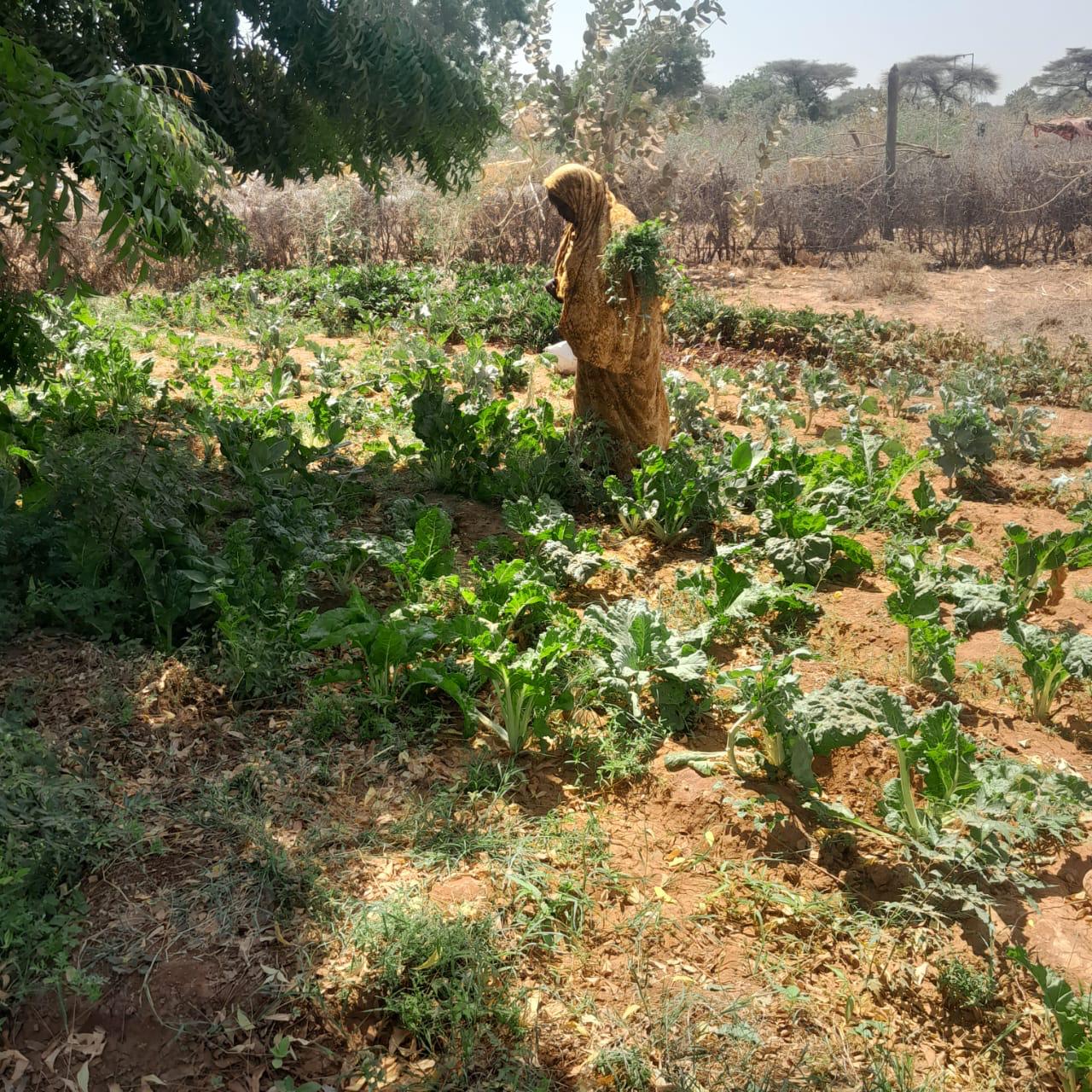Reviving Agriculture in Garissa County: A Path to Resilience
Agriculture in Garissa County, a traditionally pastoral region in northeastern Kenya, is undergoing a quiet transformation. Climate change, erratic rainfall, and prolonged droughts have severely impacted pastoral livelihoods, pushing local communities to adapt by embracing agro-pastoral practices. In February 2025, our team visited farms and agricultural cooperatives across Garissa to understand how these shifts are shaping resilience and food security.
Shifting from Pastoralism to Agro-Pastoralism
With traditional livestock-based economies under threat, communities are incorporating crop farming into their survival strategies. In Balambala and Modogashe, smallholder farmers are experimenting with drought-resistant crops such as sorghum, millet, cowpeas, and green grams.
"We never thought farming could work here. But after training and support, I now grow food that feeds my family and earns income." — Maryam Aden, Farmer in Modogashe
Organizations like the Sahel Research Strategy Group are supporting this transition by training farmers on climate-smart agriculture, water harvesting, and pest management. Borehole irrigation, zai pits, and composting are becoming common practices.
Youth in Agribusiness
Perhaps the most encouraging trend is the involvement of youth in agribusiness. In Garissa town, groups of young people have formed cooperatives producing fresh vegetables using greenhouse technology. They supply local markets and institutions such as schools and hospitals.
"Agriculture is not just for the old anymore. We see farming as a business, and it’s changing lives." — Adan Abdi, Youth Agripreneur
Challenges and Opportunities
Despite the progress, several challenges remain. Access to credit, affordable farm inputs, and reliable markets are critical barriers. Many farmers also face land tenure issues and lack mechanization. However, community-based solutions like saving groups, demo farms, and cooperatives are helping overcome these hurdles.
"We face many difficulties, but farming has taught us patience and given us hope for the future." — Nafisa Mohamed, Women's Farming Group Leader
Looking Ahead: Policy and Partnerships
The future of agriculture in Garissa depends on sustained support from county and national governments, NGOs, and the private sector. Policies that support rainwater harvesting, subsidize seeds and inputs, and enhance extension services are urgently needed.
In partnership with local leaders and farmers, Sahel Research Strategy Group is committed to promoting inclusive, sustainable agricultural development in Garissa County. Together, we are building food systems that are adaptive, productive, and community-driven.
Photo Highlights



Agriculture in Garissa is more than just a livelihood. It is becoming a symbol of resilience and a foundation for self-reliance. The seeds of change have been planted, and with continued support, they will grow into a future of abundance.